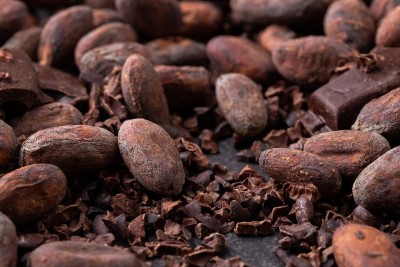
The Halal Chocolate: Cocoa Bean to Candy Bar
Indulging in the rich, velvety goodness of chocolate is an experience that knows no boundaries. But what if we told you there's a whole world of delectable treats out there that not only tantalize your taste buds but also adhere to strict dietary guidelines? Enter Halal chocolate – a sweet symphony of flavors crafted with utmost care and consideration for those seeking confections that meet Halal standards.
Origins of Cocoa Bean in Halal Chocolates
Embark on the divine journey of Halal chocolate, tracing its origins from the lush landscapes of Ghana, Ivory Coast, and Indonesia. Carefully cultivated, these cocoa beans undergo a dance of fermentation, drying, and roasting, unlocking a symphony of flavors. Transformed into a velvety chocolate consistency, sugar, milk powder, and vanilla join the alchemy. The magic intensifies through refining, cinching, and tempering, crafting a masterpiece. From humble pods to an enchanting global delicacy, Halal chocolate's tantalizing evolution is a testament to craftsmanship and nature's bounty, pleasing palates worldwide with its irresistibly smooth and rich allure.
Significance of Halal Chocolate
Halal chocolate holds immense significance for Halal consumers and the wider global community. By choosing Halal chocolate, Halal Consumers can enjoy the pleasure of eating without compromising their beliefs. Knowing that their favorite treats are prepared in accordance with strict Halal standards brings peace of mind while savoring every bite.

Common ingredients in Halal Chocolates:
In the art of crafting Halal chocolates, a medley of ingredients contributes to their unique flavors and textures. Key components include:
- Halal-certified Cocoa: The essence delivering the distinct chocolate flavor.
- Sugar: Balances bitterness with a touch of sweetness.
- Milk or Milk Powder: Elevates creaminess, adding richness to the chocolate.
- Nuts: Infused for a delightful crunch and extra layers of flavor.
- Natural Sweeteners: Extracts from fruits, flowers, or spices heighten the taste.
- Emulsifiers: Skillfully blend the ingredients, ensuring a smooth texture. Emulsifying agents should also be reviewed to confirm their Halal sources of origin.
- Halal-certified additives: Preservatives or stabilizers adhering to Halal requirements.
Halal Certification in the Chocolate Industry
Halal certification is a crucial aspect of the chocolate industry, assuring consumers that their favorite treat aligns with Halal dietary laws, chocolate makers undergo rigorous inspections, ensuring every aspect, from sourcing to manufacturing, meets the Halal certification requirements. So, your next bite of chocolate isn't just a treat—it's a testament to the meticulous process that makes it truly Halal-friendly! Based in the United States, Islamic Services of America (ISA) plays a vital role in the Halal industry, serving as an educator and certifier. Partnering with companies producing consumables and non-consumables, ISA certifies products that adhere to Halal standards.

The Health Benefits of Halal Chocolates
Indulging in Halal chocolates isn't just a treat for your taste buds; it can also offer some surprising health benefits. Dive into the delicious world of Halal chocolates with the assurance that you're not just satisfying your sweet cravings but also contributing to your well-being.
- Antioxidant Boost: Rich in cocoa, Halal chocolates are packed with antioxidants, which help combat oxidative stress and support overall health.
- Mood Enhancement: The presence of serotonin precursors in chocolate can contribute to a positive mood, making that chocolatey indulgence a delightful mood-lifter.
- Heart Health: Flavonoids in cocoa have been linked to cardiovascular benefits, promoting healthy blood flow and potentially reducing the risk of heart-related issues.
- Brain Function: Dark chocolate, in particular, contains stimulants like caffeine and theobromine, contributing to improved cognitive function and alertness.
- Stress Reduction: The pleasure of savoring chocolate can trigger the release of endorphins, acting as a natural stress-reliever.
- Mineral Rich: Halal chocolates often contain minerals like magnesium, vital for various bodily functions, including muscle and nerve function.
These Halal chocolates can be more than just a delightful treat; they can be a sweet addition to a balanced and joyful lifestyle.

Halal chocolate bars vs. truffles vs. bonbons
Halal chocolates come in a variety of forms, each offering a unique chocolate experience. Whether you prefer a classic chocolate bar, a decadent truffle, or an exquisite bonbon, there is a Halal chocolate to suit every taste.
- Halal Chocolate Bars: Harmonious sweetness and richness in bars with flavors from velvety milk to robust dark chocolate, including tantalizing combinations like sea salt, caramel, or nuts.
- Halal Chocolate Truffles: Truffles are bite-sized delights, with velvety ganache centers, and chocolate coating. Luxurious options include classic dark chocolate and adventurous flavors like raspberry or hazelnut.
- Halal Chocolate Bonbons: Bonbons are small, decorative chocolates with a variety of fillings, such as fruit purees, caramel, or praline. These visually stunning treats are perfect for gifting or as a special indulgence for yourself.
Impact of Halal Chocolate on Global Trade
The increasing demand for Halal products, including food and beverages, has resulted in a notable impact on global trade. Cocoa farmers now have increased opportunities to sell their produce specifically for Halal chocolate production, leading to economic growth in cocoa-producing countries. Additionally, retailers worldwide are stocking up on Halal chocolates to cater to diverse consumer preferences. This surge in demand for Halal chocolates has created new avenues for international trade partnerships between countries that specialize in cocoa cultivation. These collaborations help foster economic ties while promoting cultural exchange through shared consumption experiences.

Availability of Halal Chocolates in Non-Muslim Countries
Even in non-Halal Consumer countries, there's a notable rise in the popularity of Halal chocolates, accommodating a diverse consumer base. This widespread availability enables individuals from various cultural backgrounds to relish the irresistible delights of Halal chocolates.
Specialty Stores and Online Retailers
Halal chocolates can be discovered in specialty stores that cater to diverse communities, offering a broad range of Halal-certified products, including chocolates. Moreover, online retailers provide easy access to an extensive selection of Halal chocolates, combining convenience and variety at your fingertips.
Halal Certification Logo and Packaging
To meet the global demand for Halal chocolates, many brands have secured Halal certification for their products. Keep an eye out for the Halal certification logo mark on the packaging to ensure the chocolates are authentically Halal. The journey from cocoa bean to Halal chocolate unveils a symphony of meticulous craftsmanship and unwavering dedication to quality. Each delectable bite is a testament to the careful selection of Halal-certified ingredients, blending tradition with innovation to create a tantalizing treat for all. The harmonious balance achieved in the process ensures not only a delightful sensory experience but also the satisfaction of adhering to cultural and religious preferences.
From the rich earth where cocoa blooms to the final indulgence of a perfectly crafted candy bar, the Halal chocolate experience is truly a celebration of flavors and values.

Islamic Services of America (ISA) is a leading USA based Halal certification and auditing organization serving companies, the community, and the Halal certification industry for nearly 50 years. Contact ISA at isa@isahalal.com to Halal certify your products or visit the ISA website for more information at https://www.isahalal.com/